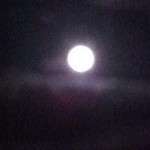If someone says something is so, and they seem a credible sort of person, and there seems no reason why they would want to tell a lie, and they would certainly stand to gain nothing from telling you something that was not true, well, then, there seems no reason to disbelieve them. So it was when, moving from the North, we heard tales of Halloween and Samhain, and talk of the start of winter and the Celtic New Year.
It was a friend from the North who pointed out the naivete of making assumptions based on the tales that people had passed on. “There was no pantheon in ancient Ireland”, he stated calmly. His comment seemed an odd way to begin his case, but the logic slowly unfolded. “There was no agreement about who or what were the “gods”, religion varied from place to place. Because there was no agreement regarding the gods or worship, there were no widespread festivals; there was no established calendar”.
The truth began to dawn upon a mind becoming slow and dull with the passing years. “So there was no agreed date for a new year?”
“Precisely, the stuff about Halloween and Samhain is made up, it has no ancient authority. Try and find documentary evidence of the druids prior to the Nineteenth Century, and you will not find it because it does not exist. We have a history that has been fabricated by Nineteenth Century romantic writers”.
“But why has no-one pointed out this?”
“People have tried to do so. People who have researched the subject have even changed the Wikipedia entries so they reflect what is known from proper historical sources and, do you know what? Within two hours, they will be changed back to the drivel about druids”.
“The case could not be simpler – no pantheon, no calendar, no Samhain – but do you think people want to hear that?”
Obviously, they do not. The supermarkets are full of products for the phoney feast and the entertainment and hospitality industry do very nicely from it. The last thing they want to hear is someone saying it is all false, that would be about as welcome as someone saying there was no Santa.
People dismissive of traditional religious belief can be entirely credulous on Celtic traditions, as if there might be some political incorrectness in challenging something said to come from ancient Ireland. “You hard-shelled materialists were all balanced on the very edge of belief — of belief in almost anything”, says Father Brown in “The Miracle of Moon Crescent”. GK Chesterton was writing in 1924, he might have written in a similar vein ninety years later of those who express unflinching belief in the veracity of the tradition of Halloween.
